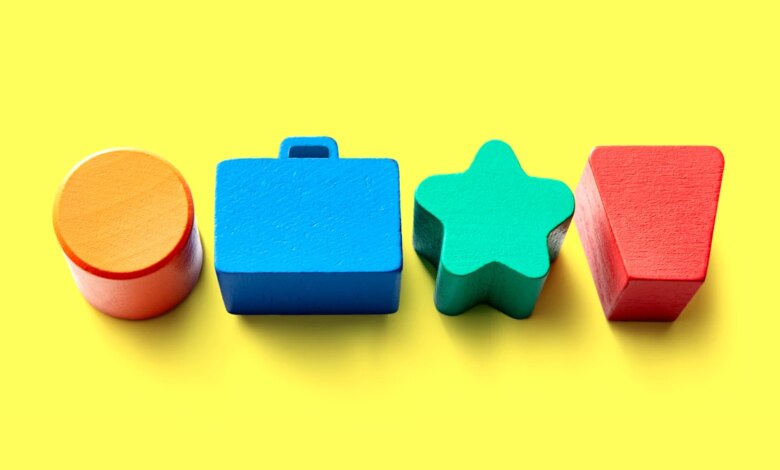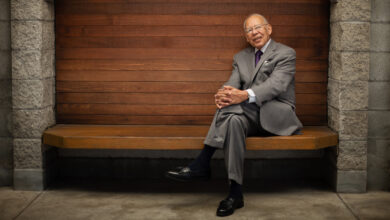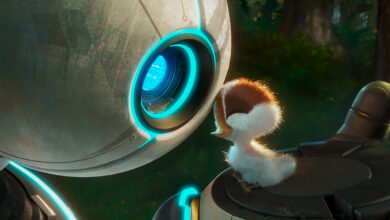I’m Trading My Career for Motherhood. Neither Will Fulfill Me.

The sight of an airplane soaring above me used to make my eyes sting with longing. At that time, I was a college dropout, a 52-pound brittle skeleton, years of anorexia having gnawed me down to little more than organs and skin.
Whenever I heard the planes, I would look up at the sky and imagine the people up there, busy living life, probably flying to important business meetings and conferences in Hong Kong or Los Angeles, or whatever important things people who aren’t dying of an eating disorder do. And I would stop to clutch at the visceral ache in my chest, remembering the days when I dreamed of becoming a journalist who traveled the world.
Twenty years later, I am doing exactly that. I write long-form stories from around the world. I am now that busy person on the plane, flying to meetings and conferences. I’ve ridden on horseback in the jungles of Burma to report on an unconventional humanitarian aid organization; flown a two-passenger airplane over the ice kingdoms of remote Alaska to report on Alaska Natives; driven past giraffes and gazelles grazing in open fields while reporting on missions to Chinese migrants in Kenya.
I am finally living the dream that seemed like a fantasy 20 years ago, when I had lost all purpose and meaning in life. But now, pregnant with my second child, I’m giving it up to be a stay-at-home mother, for who knows how long—and I am not okay.
I know how incredibly privileged I am to have the option not to work. I also know it’s a blessing to have children when so many women struggle with infertility and miscarriage. So it’s with some shame that I confess: I’m terrified of the upcoming transition from working mother to stay-at-home mother.
I have nursed this dream to do what I do today for so long, and worked so hard to get here, that giving it up now feels like time has abruptly stopped while I’m mid-somersault in a gymnastics routine, frozen in action, a body stuck in a stiff coil in the air, always falling, never landing.
When I shared this struggle with my discipleship group, our leader—a woman with three grown-up children, who gave up a potential nursing career to be a full-time mother—clicked her tongue. “I know what’s the problem,” she said. “You’re the typical modern woman.”
She’s right. I am indeed a stereotypical modern woman who bristles at stereotypical gender roles. I profess to support women striving for their dreams, whether engineering, piloting, or homemaking—but truth be told, until recently, I could not understand women who chose motherhood as their vocation.
Becoming a mother was never part of my dream. I didn’t buy the dominant message that women can do it all. The math didn’t make sense: You can’t give 100 percent to your career and another 100 percent to motherhood. I chose career, obviously; I didn’t think I had an ounce of maternal instinct. Even the chubbiest, rosiest baby did not make me want to coo. Why would I want to take one home with me?
The conversation about womanhood and motherhood often seems to fall into tiring cultural wars over tropes, not real women: One side declares a woman free to do whatever she wants, to follow her own heart (even as we know our hearts are as volatile, unpredictable, and inconsistent as my toddler).
The other side says women like me have swallowed “diabolical lies” about womanhood. They say a woman’s highest or greatest calling is to be a wife and mother. They say the feminist movement has deceived women into believing that a career can fulfill us and that housewifery is bland and suffocating.
True, society does not celebrate homemakers enough, which can make women who choose to stay at home feel dismissed and small. It explains the rise of “trad wives,” a social media phenomenon in which women refuse to apologize for their aprons and instead proudly reclaim the “traditional” values of womanhood, which they interpret as staying home to cook, clean, and care for their family, often through aesthetically pleasing vintage filters.
Neither side speaks to me. And these aren’t the kind of conversations I have with other women who struggle to feel fulfilled in motherhood or career.
Yes, I suppose I am that “typical modern woman.” But there’s something more. Those delicious hours I spent as a child filling notebooks with ideas and stories were not feminist roars but an innate expression of a creative God, who blessed both men and women to create and cultivate. I didn’t go to work excited about toppling patriarchy or earning wealth or social status. I worked because I loved it.
But then that changed. Our son, growing in my womb for months before I finally noticed him, started kicking. And before I ever felt ready to be a mother, two years ago, he was born with an indignant cry.
Thanks to California’s paid family leave benefits, I was able to take four months of maternity leave. The 122 days of taking care of my son full-time blurred into one fuzzy, sleep-deprived daze soaked in the cloying scents of sweet breast milk and milky belches. I couldn’t tell when the sun rose and when it set.
But I also never knew such tenderness. The love that bloomed inside me was no honeymoon rose, fresh and perky one season, droopy and faded the next. It just kept growing, an enchanted ivy that danced evergreen and lush. I observed this budding love with awe and journalistic curiosity: Did my body really create this magical creature? How can something so scrunchy and wrinkly look so sweet and delightful in my eyes?
I couldn’t imagine life without our son, couldn’t imagine how I could have ever desired a life without him. And yet—I was also bored out of my mind. I could not wait to return to work. My first day back from maternity leave, I dusted my desk and sat down with a steaming—not lukewarm—cup of coffee, and felt like I had been gifted a vacation. I felt, in so many ways, liberated. My intellect, stiff from neglect, could now explore things beyond tummy times and wake windows.
But I also came back a different person. I felt older, crankier, slower. My creativity was stuffy and sniffly like a persistent cold. My focus was off, all my senses overstimulated by a child greedy for food, touch, attention—everything and more than I had to give.
Traveling for a reporting trip became a logistic scramble of pumping and labeling a freezer’s worth of breastmilk, prepping two weeks of healthy meals, paying the nanny for extra hours, and sometimes flying grandparents cross-country to help out.
Figuring out a way to keep my milk supply was stressful. Once, I was stuck in the backseat between two grown men in a bulletproof truck for a 10-hour drive across the fields of war-torn Ukraine. We stopped for a quick lunch, and I raced to the restroom, frantically trying to manually pump a full load into the bathroom sink.
It affected my marriage. Seeing my husband’s exhausted, haggard face during our video calls when I was overseas made me feel both guilty and irritated. When I returned home, travel-weary, my husband greeted me with the relief of a drowning man spotting a raft and then paddled madly away, leaving me in the waters to make up for my parenting slack.
I love our son fiercely, deeply. But I don’t find motherhood fulfilling; and yet work doesn’t feel fulfilling either. Perhaps it never was, because even before I became a mother, I remember spending each birthday feeling anxious as another year passed, my 20s receding into my late 30s, feeling as hungry as I had been back with anorexia, with the hollow dissatisfaction that I was not as accomplished or as influential as I wanted to be.
Fulfillment is such a first-world, 21st-century problem to worry about, something we hear often: Is my marriage fulfilling? Is my career fulfilling? Is my friendship fulfilling? When I had nothing but bones, what I do now felt like the stars, the galaxy, the universe.
Now I have the stars and galaxy—plus the unexpected, unasked-for gift of motherhood—and it still doesn’t feel like enough.
If the answer to this is that I’m brainwashed by modern feminism and that I just need to recover the “real” meaning of womanhood, then that’s just piling shame upon shame, misleading me from one false illusion to another. I’ve seen many stay-at-home mothers compare their children and parenting to that of others, and then sink into an identity crisis when the kids are not all right or when they leave for college.
This is not a female problem. It’s a human problem.
Most men seem to get both worlds—fatherhood and a career. Nobody criticizes them for pursuing their ambitions, and everybody praises them for taking the kids to the park. We also don’t hear as many men talk about sacrificing career for family, and that’s a shame. I know an acquaintance who was too busy building his company to settle down, and now, almost in his 50s, wealthy and successful, he’s dating women in their 20s because he dearly wants children. It might have benefited him to think about the sacrifices of pursuing his ambitions sooner.
A lot of what I desire is good. I was made in the image of a Creator. I was made to create, which includes children, but not just children; and work and motherhood were never meant to fulfill me. Before humans ever began procreating or cultivating, God was already delighted in them and called them “very good,” simply for being. He created humankind already fulfilled in him. Fruitfulness and dominion is a blessing, an added bonus.
That’s how the Bible begins, with Genesis 1 and 2. The problem is that I’m trapped repeating the story of Genesis 3 over and over.
I was feeling insecure, exhausted, and dissatisfied when I recently reread Genesis 3. God opened my eyes, and I saw myself. I saw the Serpent distort God’s Word, twist God’s character, and implant doubt and temptation in my mind: Is God really good? Am I really content? I saw myself standing in the midst of all the fruits I could eat in the garden, yet fixating on the one fruit God prohibited. The garden, with all its overflowing, self-replenishing abundance, was not enough. God was not enough. I wanted that fruit.
It’s the sin of pride. It’s pride that sets these ever-climbing expectations for myself, pride that measures my value by what I produce. But I’ll never be satisfied, because I know too well how far I fall short, how many people are better than me, and then I feel the shame and fear of being exposed. I might not be starving myself to death anymore, but the same toxic mixture of pride and shame that developed into an eating disorder still courses through my veins.
Genesis 3 isn’t a story from long ago. It’s current reality. It is the engine through which this world operates, the way I operate.
When my second child is born, I will focus on motherhood for an indefinite season, because this is the season in which God has called me to be faithful. I will repeat the cycles of breastfeeding, rocking, and burping, and it’ll feel dull and monotonous.
I will try to be faithful, but I will likely feel resentful. My back will ache and my brain will creak. I will fight every urge not to get impatient with my toddler and husband, and sometimes lose. I will get bored. I will not feel enough, and I’ll want to seek fulfillment in something—until I remind myself of the garden, and that Genesis 3 is not the end of the story.
There’s fresh grace in this upcoming season. Maybe I shouldn’t think it unfair that women tend to struggle more with the sacrifices of career and motherhood. Maybe it’s a blessing, because this transition from working mother to stay-at-home mother will poke and stretch me in places tender and sore, jolting me from operating out of my usual system, to reflect on and reform old patterns of thoughts into new ones.
There’s nothing dull or monotonous about that.
Sophia Lee is global staff writer at Christianity Today.




